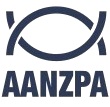Peter Howie
The development of a psychodramatic practice can take place at any time from mid-way through training to well after becoming a practitioner. For some it may be the beginning of the process, for others an expansion of their process.
Background
At some point, when training, a person begins to warm up to running a psychodrama group. Sometimes this beginning warm-up is kicked off by a colleague, or most often by a trainer. Sometimes the trainer appears to be facetious, or frivolous, in their recommendation perhaps because a straight recommendation might create a reactive response rather than a floating ‘let’s think about it for a bit’ easy going warm-up.
But at some point this warm-up process begins to lead a person towards taking the plunge: the plunge to run a psychodrama group where you are the group leader, the director, and the ‘most spontaneous person in the group’. Your own psychodrama group where group participants look to you for leadership, stimulation, beginnings, endings, next steps, permissions, good ideas, spontaneity training, and coaching on how to be an auxiliary. Your own groups where: each participant in that group trusts you, the leader, to take their subjective internal experiences and views of the world seriously. Your own groups where: depth emerges from creative spirits, new solutions come from rising spontaneity, and where relationships form, and re-form, and stimulate, and motivate. Your own groups where: intimacy evolves and grows. Your own groups where: you can realise that nothing is yours and all is co-created.
And then something happens …
The something that happens can be called a reactive fear, of which there are many unique and creative ones. Reactive fears such as: what if no one comes; what if I’m not the most spontaneous; what if I lose control; what if I’m over controlling; what if no one has a problem; what if everyone wants to do a drama at the same time; what if no one relates to one another; what if they don’t like each other; what if I have to do something?
Then the solutions that emerge from the interplay of the creative impulse (or disturbing motive) and the natural reluctance (or reactive fear) that emerges as a result of such a creative impulse are creative and plentiful, and, unfortunately, many are restrictive. The term ‘procrastination’ could legitimately be applied to many of the solutions. The procrastination scripts usually include fantasies about times in the future when there is the great luxury of more time, space for a group, families gone or sorted, finances stabilised, when the training has raised one to a significantly improved position of skill and capability, when people are clamoring to join a psychodrama group, when I’ve finished my degree, when I’ve started my degree, or when I’ve written my dissertation, or when I’ve written my social and cultural atom paper or systems paper. Then, THEN will be the time.
As a consequence the groups are not adequately imagined, venue times remain un-booked, a program, flyer, or blurb, is not organised, supervision and advice is not sought, no marketing occurs, and before anyone knows it, Christmas comes and goes, a new year arrives … ah-well!
However I can assure you that these groups are more fun than being in a training group, or a self-development group. These groups are just wild.
This Workshop
The focus of this workshop is on developing a psychodramatic practice. We will investigate the value of running psychodrama groups drawing of folks experiences of being in them and of running them, different experiences of the reactive fears that can emerge and make it difficult to continue to create them, and the psychodrama method will be used to develop the spontaneity required for new, enabling solutions.
Participants
Participants can expect to develop new dreams, and take concrete steps towards running groups that use psychodrama and group processes. We will develop grounded warm-ups including plans to implement, in your own unique context. This may mean running groups at work, running groups for community concerns, running short term groups, or longer term groups.
This group will suit trainees, who are considering running groups, or practitioners who would like to branch out into running some or more self-development, or psycho-education groups that use group processes as well as psychodramatic methods as their prime methodology.
Leader
Peter Howie is the Executive Director of Psychodrama Australia, and the Director of Training at the Brisbane campus. He is also a psychodrama Trainer, Educator and Practitioner (AANZPA accredited). He has extensive experience in psychodrama training, organisational consulting and designing and running adult experiential training programs. He has spent over 20 years developing a range of group designs for running experiential psychodrama programs.
Find out more about him here. And find out about the range of experiential programs he has run.
Fee
$NZD420.00
Session Times
- Tue 20 Jan: 9.30am – 9.30pm
- Wed 21 Jan: 9.30am – 4pm
